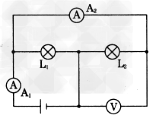“Who did this?” asked my teacher. Thirty
问题:
“Who did this?” asked my teacher. Thirty children tried to think about not only what they had done, but also what our teacher might have found out.
“Who did this?” she asked again. She never became angry, but she was this time. She held up a piece of broken glass and asked, “Who broke this window?”
“Oh, oh,” I thought. I was the one who broke the window. I did not do it on purpose (故意). It was caused by a bad throw of a baseball. Why did it have to be me?
If I admitted (承认) it, I would be in a lot of trouble. How would I be able to pay for a big window like that? “My father is going to get angry at me,” I thought. I didn’t want to raise (举起) my hand, but something much stronger than me pulled it up.
“I did it,” I said. Then I was silent. It was hard enough saying what I had.
My teacher went to one of our bookshelves and took down a book. She then began walking towards my desk. I had never known my teacher to strike (打) a student, but I feared she was going to start with me.
“I know how you like birds,” she said as she stood looking down at my face. “Here is the field guide about birds (鸟类野外指南) that you always check out from our school library. It is yours now. We have got a new one for the school. You will not be punished (惩罚). But remember, it’s only for your honesty.”
I couldn’t believe it! I wasn’t being punished and I was getting my own bird field guide, the one that I had been saving up all my money to buy.
小题1:How did the writer feel when he saw his teacher walking towards him with a book from bookshelves?
A.Relaxed.
B.Pleased.
C.Frightened.
D.Guilty.小题2:What do the underlined words “check out” mean?
A.lend
B.borrow
C.test
D.buy小题3:What can we learn from the story?
A.The writer’s teacher often hit her students.
B.The writer broke the window when he was catching a bird.
C.The writer was seriously punished after he admitted his mistake.
D.The writer didn’t want to admit his mistake at the beginning.小题4:The writer mainly wants to tell us that ______.
A.he who is honest is wise
B.better late than never
C.practice makes perfect
D.a friend in need is a friend indeed
